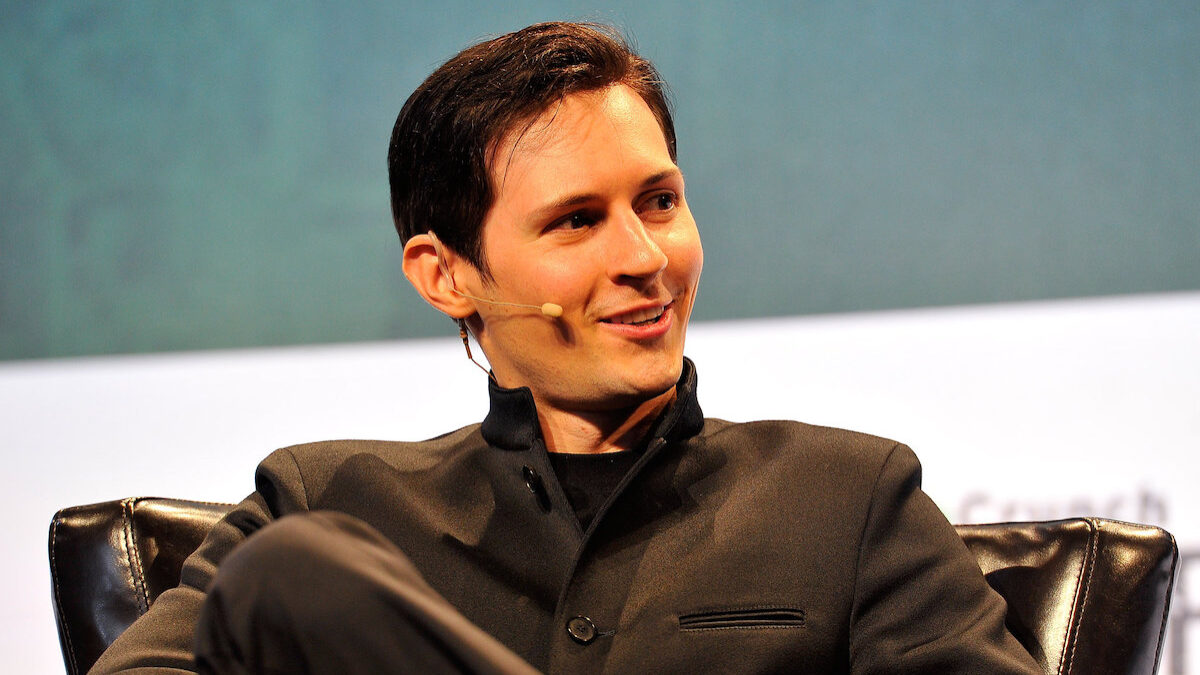
It’s time to face the truth. Conservatives are losing miserably in the battle for religious freedom. The last week has given us yet another iteration of what has become a familiar story: conservatives take some exceedingly modest step to try to protect religious freedom, and liberal commentators throw themselves into hysterics and start dropping references to Nazis or Jim Crow. Conservative commentators try to correct the record (see here, here, here, here, and here just for starters) but the political establishment mostly backs away, and hysterics win the day.
Why do liberals behave this way? Because it works. Toddlers will go on throwing tantrums if it gets them what they want. Athletes in a sporting match will continue to flop if the refs keep falling for it. Similarly here, liberals will continue to lie, misdirect, and exaggerate so long as the public keeps buying their act. Maybe some of commentators do feel a little dirty at this point; I couldn’t say. But they’re winning the fight that most matters.
It’s time to regroup and consider our strategy. What does the Left really want? What can we do about it? I don’t like to be negative, but I think it’s pretty clear that the battle isn’t going well for us.
What Does The Left Want?
Here’s what they don’t want: a free and tolerant pluralistic society. Quite a lot of people have noticed this of late, though some seem to think it’s a new development. The Wall Street Journal recently bemoaned “the new intolerance” of our era and the “paradox” of America becoming more anti-traditional-religion exactly as it comes to embrace alternative sexual lifestyles.
In a somewhat related vein, The Federalist’s own publisher, Ben Domenech, writes that “Culture War 4.0” is characterized by “a broad rejection of tolerance as a virtue” and that “if anything, we have underestimated the commitment of the secular left to enforce fealty within a naked public square, where tolerance is no longer a virtue and the power of government must be used to stamp out dissent.”
I understand Domenech’s point. But it’s still a weird moment for those of us who have argued for years that same-sex marriage had less to do with enabling anyone to do anything they couldn’t already, and more to do with undermining (and eventually persecuting) religion and traditional mores. Everyone told us we were paranoid. I sure wish those people had been right.
I’m not a conspiracy theorist. I don’t think ranking liberals have been getting together in smoke-filled rooms to plot the end of Christianity. But in some ways they might as well have, because secular progressivism isn’t the sort of philosophy that builds free and broad-minded societies. It never has been. There’s no “paradox” here, nor have liberal progressives betrayed any of their own core principles. What we have in America today is a war between ideological and cultural enemies. One side is losing and the other is winning. Far from being paradoxical, it is in some respects chillingly straightforward.
Robert Tracinski recently made a relevant argument here when he explained why liberals are so angry. He could easily have adapted that same argument to explain why liberals are so overbearing, and want the whole world to look exactly like them. Progressive goals are naturally fascist, and as such, hostile to traditional religion (which, as progressives implicitly recognize, is still their most formidable cultural enemy). Liberal progressivism’s natural lifecycle ends with the patricide of its Judeo-Christian parent. Its eschaton (the final ends it perpetually seeks) is entirely political, and extends in principle to every element of human life.
By contrast, the Judeo-Christian tradition calls for subsidiarity and a respect for natural community and natural rights. It also advises restraint, born of the realization that political community will always be imperfect in a fallen world. These two impulses do not mesh harmoniously.
The bottom line is, unless we want the whole world to march to a liberal progressive drum, we can’t expect to compromise with the hard secular Left. “You will be assimilated” really is their driving ethos.
What does the Left want, more concretely, with respect to religion? I would refer you to this interesting article for some sociological evidence on this point. To summarize, they currently want to chase religion into the cloisters (ideally literally) so that they never have to see, hear, or think about it. Religious people may continue discussing God and performing weird ceremonies on their own time and at their own expense, in the privacy of a few clearly-segregated spaces. Meanwhile, secular liberal norms will dominate all public spaces and all major political and cultural institutions. Of course these will enjoy significant taxpayer support, including the involuntary support of religious conservatives.
That’s all. It’s probably the odd bird who actually wants to feed us to the lions. But stay tuned, because progressives have a knack for “evolving” in their social goals.
Are We Already Doomed?
It’s hard to say, of course, but I don’t yet believe that we’ve passed the terminal point. I do believe that conservatives need to modify their approach if they want to parry liberal progressive advances more effectively.
We’re not going to broker any deals with the hard secular Left, certainly not when they’re feeling the wind at their backs. But there’s a silver lining. This group does not represent the entire American public. They’re an influential minority, but still a minority. They have to use smoke and mirrors to misdirect the American middle, because their media control is far disproportionate to their actual numbers. And the main reason they keep talking about tolerance is that most Americans still want it. Most don’t share the secular Left’s eagerness to see religion banished to tiny, invisible enclaves.
The trick, then, is to help the American middle understand what’s really happening here. Now, you might think that conservatives are already pulling out all the stops to explain themselves. (See the plethora of links above.) I appreciate these efforts, and I’m sure they do help. But we’ve done this dance before, and obviously it’s not enough. It would help even more if Republican politicians had some backbone, but in general politicians grow a spine only when they sense that the people are behind them. What we need, then, is to get the people behind them.
To do that, we need the public to understand what human interests are really at stake in these conflicts. Most people don’t see the real dimensions of this struggle, and to an extent, this is our own fault. Conservatives have a bad habit of moving messy cultural clashes to the realm of bloodless formal principles. In our heads, this is the best way to be rational and principled. But in the public square, we mostly end up sidelining ourselves into irrelevance.
Human Stories Versus Formal Principles
It isn’t per se incorrect to describe culture wars in terms of tolerance, freedom, respect for autonomy, and so forth. Certainly those goods are relevant and applicable. But is there any culture war in the history of mankind that didn’t broadly revolve around those kinds of questions? Culture wars arise when different sub-cultures find that their priorities and interests are at odds. Invariably, we find ourselves debating what should and shouldn’t be tolerated, where freedom and respect find their limits, and so forth.
The general questions really don’t change very much from age to age. That may help explain why abstract discussions of freedom, tolerance, and respect for autonomy are really most effective for preaching to the converted. The mainstream public hears these as buzzwords, and mostly they just tune out.
Think about how the Left wins its public opinion battles. They show you two nice-looking men. “Meet Tom and Jack. They’re gay. They love each other and want to commit their lives to each other. But religious conservatives say that’s wrong. What do you think?”
They bring Sandra Fluke to the stage. “Hi, I’m a nice young woman just trying to get through law school, but it sure is tough to pay for my contraceptives. None of my male peers have this problem. Republicans don’t care, though. You know, I don’t think they’ve ever been too keen on woman lawyers.” We hate it, but it works. Liberals have been extremely successful at getting the public to care about their causes by persuading them to care about their people.
Here’s how we do it. Rick Santorum tells the world he and his wife don’t use contraceptives, and we cringe. “Keep it to yourself! More than we needed or wanted to know!” Santorum is famous (infamous, even) for maintaining that marriage is an intrinsically procreative institution, so this personal detail was actually very relevant to his politics. Still, we shush him, because we’re embarrassed. We prefer to stick to the comfortable realm of more formalized goods (“religious freedom” and “individual autonomy”).
It’s funny that people were so embarrassed about that because the Santorums really aren’t such bizarre outliers in their views. According to a 2012 Gallup poll, 11 percent of Americans find artificial contraceptives to be morally problematic. That’s a minority, of course, but a sizable one. If Gallup’s numbers are right, Americans who share the Santorums’ moral views outnumber American Jews, Mormons, atheists, and homosexuals combined. Transgendered people are an absolutely miniscule group by comparison.
But shh! Keep your freaky, weirdo views to yourselves, non-contraceptive users. We don’t want to scare people. (Lest you think the Santorum kerfuffle was an isolated incident, I can testify that it’s not. I’m not famous, but whenever I write about contraceptives, I always get at least a few tweets, emails, or personal comments suggesting that maybe it’s not so smart to air these outlandish, unsympathetic views in recognizable conservative outlets. After all, we don’t want the public to conclude that conservatives are crazed, Puritanical zealots.)
Suppose a stringent animal-rights activist told the world that he was a vegetarian. Would Democrats cry, “Pipe down! Keep your personal life to yourself!” Of course they wouldn’t. We’d all understand why it was relevant, and anyway nobody is spooked by vegetarians; they’ve done a great job of carving out a recognized place in America as a respected and accommodated minority. Most all of us, even if we find vegetarianism tiresome, offer a meatless entrée at our weddings. But when the government tramples all over the sensibilities of faithful Catholics (and others who have moral objections to artificial contraceptives), most Americans don’t especially care.
Would it surprise you to learn that vegetarians represent just over 3 percent of the population? In other words, people who share Santorum’s unspeakable, embarrassing views are almost three times as common as those who shun meat. But it isn’t raw numbers that determine whether a particular group is regarded with tolerance and respect. It’s understanding and sympathy. If the public understands who you are and why you live in a particular way, they’re usually willing to accommodate you to some extent. If not, they won’t trouble to protect you against the incursions of the Progressive state.
Let’s Make Religious Freedom Personal
So, perhaps you’re reading this as a committed libertarian atheist who doesn’t subscribe to a traditional Judeo-Christian moral perspective. You’re happy to let religious people do their thing, but mainly you just want the government to get off our backs. And you hate identity politics. What are you supposed to make of this “gin up more sympathy for Christians” approach?
Hi, I’m Rachel. Let’s be friends, shall we? Our interests aren’t aligned 100 percent, but we easily have enough in common to work together. I promise I’m not plotting to turn the United States into a papist theocracy. And I think your motivations for supporting conservatism are perfectly reasonable.
I would just ask you to consider something. Perhaps at times, your personal investment in more formal principles (limited government, freedom of association, individual autonomy, etc.) might lead you to underestimate the real significance of cultural and moral conflicts that, to much of America, seem awfully important. If the battle in your head isn’t the one most of America thinks it’s fighting, you might miscalculate sometimes as to what strategies will work. We’re all prone to this kind of error, of course. But in this instance I think the evidence is piling up against those who think we can get Progressive America to sign on for a genuinely free, open-to-everyone naked public square.
The increasingly-evident reality is that progressive America will never honor this kind of limited-government, tolerance-based compromise. They don’t respect those principles, and they’re happy to break their promises to achieve the totalitarian “progress” that their philosophy demands. If we want to stymie these advances (both culturally and politically) the most effective obstacle will be the objections of the greater American public. To win that kind of widespread support, we need more Americans to appreciate what, on a human level, will be lost if the Progressive agenda is permitted to advance.
We don’t have to play identity politics in a shameless or misleading way. I don’t want anyone to feign commitments they don’t actually hold. But there’s nothing shameless about showing the public why less-familiar lifestyles or commitments might, in their way, be admirable and worthy of respect.
As the Left regularly demonstrates, you needn’t be part of a group in order to be an “ally” to those who do. My liberal friends regularly self-identify as “straight allies” or “male feminists” or what have you. Conservatives do this occasionally (some good examples here and here), but not nearly as often. When we do find ways to humanize our causes, that’s usually when we’re at our best. Just look at the pro-life movement.
Atheists for Jesus? Libertines in support of traditional sexual morals? For obvious reasons, I’m not the person to start those clubs, but I’ll cut you a deal. Help out with “humanizing” religious conservatives, and I’ll keep explaining to them why small government is really the most Christian way to go.









